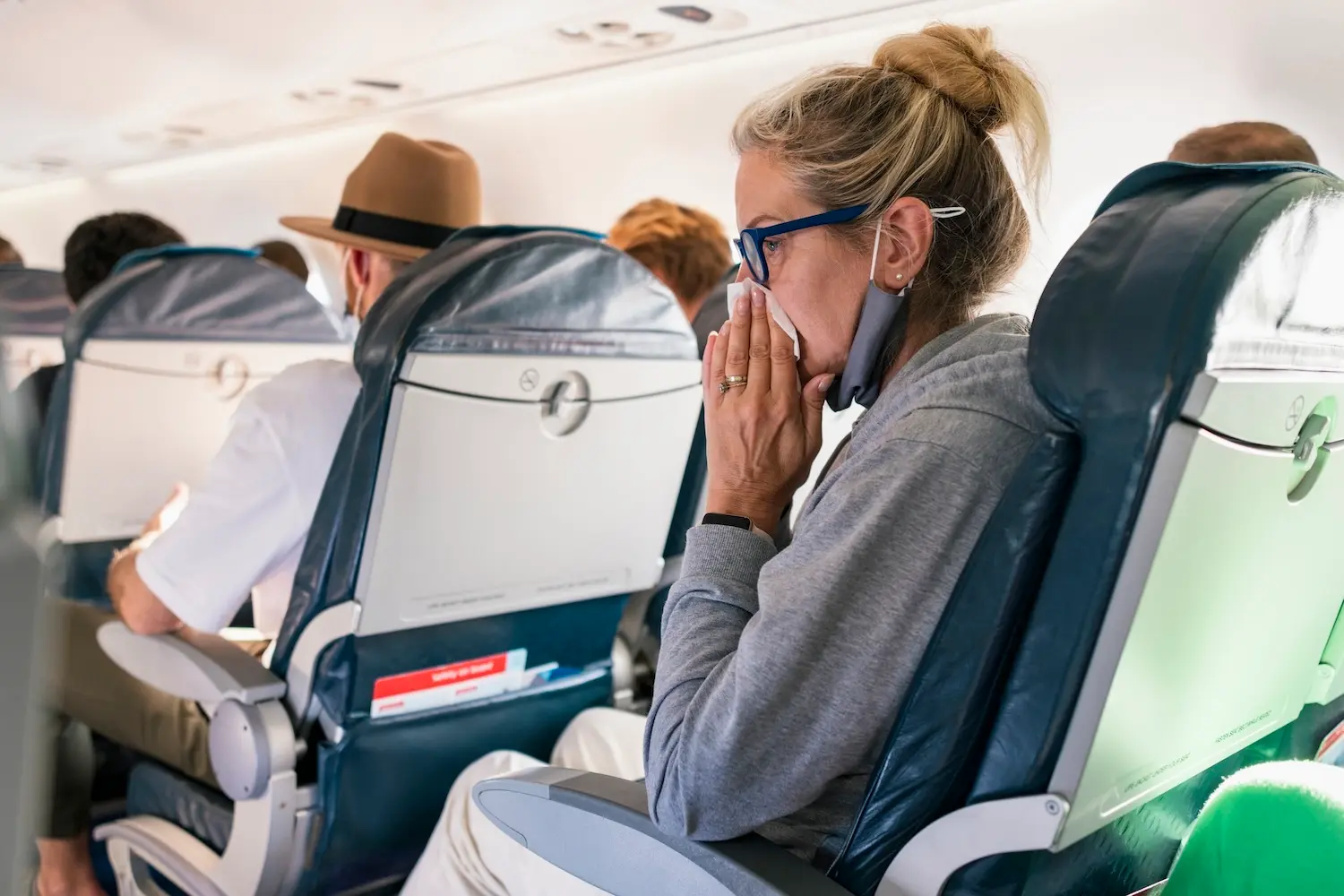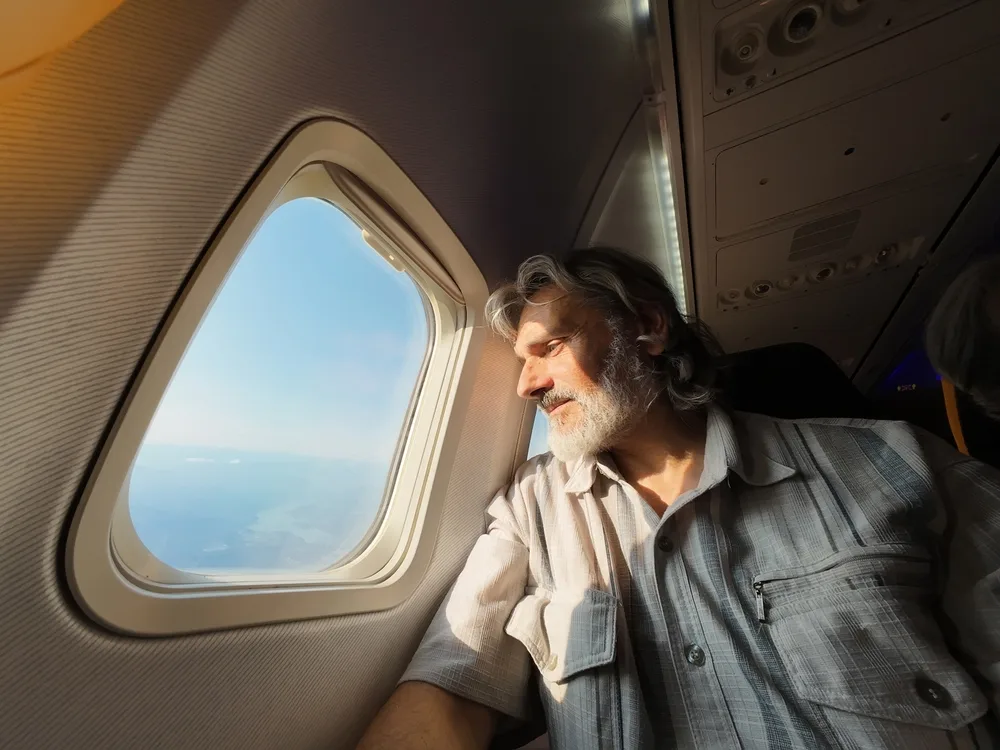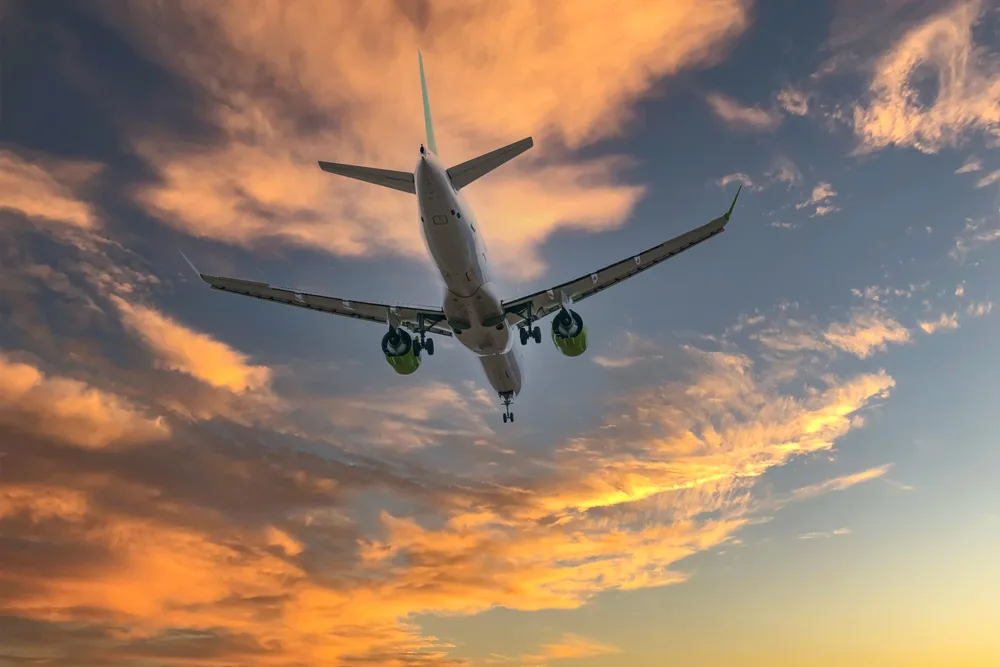How to avoid getting sick when travelling
Travelling is undoubtedly an exhilarating experience, offering the opportunity to explore new cultures, cuisines, and landscapes. However, amidst the excitement of discovering unfamiliar territories, it's crucial not to neglect...

Travelling is undoubtedly an exhilarating experience, offering the opportunity to explore new cultures, cuisines, and landscapes. However, amidst the excitement of discovering unfamiliar territories, it’s crucial not to neglect one’s health. Whether embarking on a long-awaited vacation or a business trip, prioritising health and well-being can make all the difference in ensuring a memorable and enjoyable journey.
Travelling presents unique challenges to maintaining one’s health and vitality. The demands of navigating unfamiliar environments, adjusting to different time zones, and encountering various climates can take a toll on the body. Therefore, understanding the importance of health during travel is crucial to safeguarding oneself against potential risks.
Understanding the risks
Travellers are exposed to a myriad of health risks, ranging from common ailments to more severe conditions. Being aware of these risks is the first step towards proactively addressing them and safeguarding one's well-being throughout the journey.
Common health risks while travelling
Exposure to new environments can expose travellers to unfamiliar pathogens, leading to respiratory infections, gastrointestinal illnesses, and other ailments. Moreover, changes in diet and lifestyle can disrupt the body's equilibrium, resulting in digestive issues and fatigue.
Specific health concerns
In addition to common health risks, travellers may encounter specific concerns depending on their destination. Infectious diseases prevalent in certain regions, such as malaria or dengue fever, pose significant health threats. Furthermore, altitude sickness can affect individuals travelling to high-altitude destinations, causing symptoms ranging from headaches to severe respiratory distress.
Preparation before your journey
Preparation is key to mitigating potential health risks and ensuring a smooth travel experience. Consulting with a healthcare provider allows travellers to receive personalised medical advice tailored to their destination and individual health needs.
Consultation with healthcare provider
Before embarking on their journey, travellers should schedule a consultation with their healthcare provider to discuss any pre-existing medical conditions, vaccination requirements, and necessary medications. Based on the destination and planned activities, the healthcare provider can offer recommendations to prevent and manage potential health issues.
Packing essentials
Packing a well-equipped medical kit containing essential medications, first-aid supplies, and preventive measures is essential for addressing minor injuries and illnesses on the go. Additionally, carrying protective gear such as face masks and hand sanitizers helps minimise the risk of exposure to infectious agents.
Maintaining good hygiene practices
Practising good hygiene habits is crucial for preventing the spread of illness and maintaining overall health while travelling.
Hand hygiene
Frequent handwashing with soap and water, especially before meals and after using the restroom, is essential for removing germs and reducing the risk of infection. In situations where hand washing facilities are unavailable, alcohol-based hand sanitisers provide a convenient alternative for disinfecting hands effectively.
Food and water safety
Consuming contaminated food and water is a common cause of gastrointestinal illnesses among travellers. To minimise the risk of foodborne illness, travellers should opt for freshly prepared foods served hot and avoid consuming raw or undercooked dishes. Additionally, drinking bottled or boiled water and avoiding ice cubes made from tap water can prevent waterborne diseases such as cholera or traveller's diarrhoea. It's advisable to exercise caution when purchasing food from street vendors and ensure that fruits and vegetables are thoroughly washed or peeled before consumption.
Avoiding altitude sickness
Travellers venturing to high-altitude destinations face the risk of altitude sickness, a condition caused by the body's inability to adjust to decreased oxygen levels at higher elevations.
Understanding altitude sickness
Altitude sickness, also known as acute mountain sickness (AMS), encompasses a range of symptoms that can manifest within hours or days of ascending to altitudes above 2,500 metres (8,000 feet). These symptoms may include headache, nausea, fatigue, and shortness of breath, among others.
Gradual acclimatisation
To mitigate the risk of altitude sickness, travellers are advised to ascend gradually, allowing their bodies time to acclimatise to the reduced oxygen levels. This involves taking frequent breaks during ascent, staying hydrated, and avoiding strenuous physical activity until fully acclimatised.
Eating well on the road
Opting for nutritious meals rich in fruits, vegetables, lean proteins, and whole grains provides essential vitamins and minerals necessary for optimal health. When dining out, choosing lighter options and limiting consumption of fried or processed foods can help prevent digestive discomfort.
Hydration strategies
Staying adequately hydrated is vital, particularly in warm climates or at high altitudes where fluid loss through perspiration and respiration is increased. Drinking water regularly throughout the day and monitoring urine colour to ensure it remains pale yellow are simple yet effective strategies for maintaining hydration levels.
Incorporating physical activity
Engaging in regular exercise, even while on the road, offers numerous benefits, including improved mood, increased energy levels, and enhanced cardiovascular health. Simple activities such as walking, cycling, or practising yoga can be easily incorporated into daily itineraries.
Prioritising rest
Ensuring adequate rest and relaxation is essential for preventing fatigue and minimising the effects of jet lag. Establishing a consistent sleep schedule, creating a comfortable sleep environment, and practising relaxation techniques such as deep breathing or meditation can facilitate restful sleep during travel.
Stress management
Travelling can be inherently stressful, but adopting effective stress management techniques can help alleviate tension and promote mental well-being.
Minimising travel stress
Planning ahead and organising travel logistics in advance can reduce uncertainty and alleviate stress associated with navigating unfamiliar environments. Additionally, incorporating relaxation techniques such as deep breathing exercises or mindfulness meditation can help calm the mind and promote a sense of tranquillity.
Techniques for relaxation
Exploring relaxation techniques such as progressive muscle relaxation, guided imagery, or listening to calming music can provide a sense of relaxation and tranquillity amidst the hustle and bustle of travel. Taking regular breaks to indulge in activities that bring joy and relaxation, such as reading a book, taking a leisurely stroll, or enjoying a soothing cup of tea, can also help alleviate stress and promote overall well-being.
Sun protection
Applying sunscreen with a high sun protection factor (SPF) and reapplying it regularly, especially after swimming or sweating, helps shield the skin from harmful UV rays. Wearing protective clothing such as wide-brimmed hats, sunglasses, and lightweight, long-sleeved garments offers additional protection against sun exposure. Seeking shade during peak sun hours, typically between 10 a.m. and 4 p.m., when UV radiation is strongest, further reduces the risk of sunburn and heat-related illnesses.
By understanding the potential risks associated with travel, adequately preparing beforehand, and implementing practical strategies to maintain good health on the road, travellers can minimise the likelihood of encountering health-related issues and maximise their enjoyment of the journey. Whether exploring exotic destinations, embarking on adventurous escapades, or simply unwinding in serene surroundings, incorporating healthy habits into one's travel routine is key to fostering a sense of vitality and vitality throughout the voyage.
FAQS
What should I include in my travel medical kit?
Your travel medical kit should contain essential medications, first-aid supplies, insect repellent, sunscreen, and any prescribed medications specific to your health needs.
How can I prevent jet lag when travelling across multiple time zones?
To minimise the effects of jet lag, gradually adjust your sleep schedule before departure, stay hydrated, expose yourself to natural sunlight during daylight hours, and avoid caffeine and alcohol.
Are there any dietary precautions I should take while travelling to foreign countries?
Yes, it's advisable to avoid consuming raw or undercooked foods, drink bottled water, and exercise caution when eating street food to prevent gastrointestinal illnesses.
What are some relaxation techniques I can use to alleviate travel-related stress?
Relaxation techniques such as deep breathing exercises, progressive muscle relaxation, mindfulness meditation, and engaging in leisure activities can help reduce stress and promote relaxation during travel.
How can I stay active while travelling?
Incorporating simple exercises such as walking, cycling, swimming, or practising yoga into your daily itinerary can help you stay active and maintain your fitness level while travelling.
These FAQs provide valuable insights and practical tips for travellers seeking to prioritise their health and well-being during their journeys. By following these recommendations and staying informed, travellers can enjoy safe, fulfilling, and memorable travel experiences.
Important notice:
Any advice provided is general in nature and does not take into account of your particular needs and circumstances. Before purchasing the insurance, decide whether this product is right for you by reading the combined Product Disclosure Statement and Financial Services Guide available hee. A Target Market Determination for this product is available here. We also recommend consulting with relevant governmental and local authorities, including checking the Smart Traveller website, before making any travel decisions – https://www.smartraveller.gov.au/disclaimer
This insurance is underwritten by the insurer Mitsui Sumitomo Insurance Company Limited (MSI), ABN 49 000 525 637, AFSL 240816. Europ Assistance Australia Pty Ltd (EAA) ABN 71140219594, AFSL 552106 holds a binding authority from the insurer, MSI to issue contracts of insurance and to deal with or settle claims on MSI’s behalf and as MSI’s agent.
AllClear Insurance Services Pty Ltd, ACN 165 270 066, trading as AllClear Travel Insurance, is an Authorised Representative (AR number 1311154) appointed by EAA to distribute and administer this insurance product.
Related Posts
Get expert takes on travel trends, safety updates, and destination news to make smarter travel decisions.
%201.svg)



.webp)